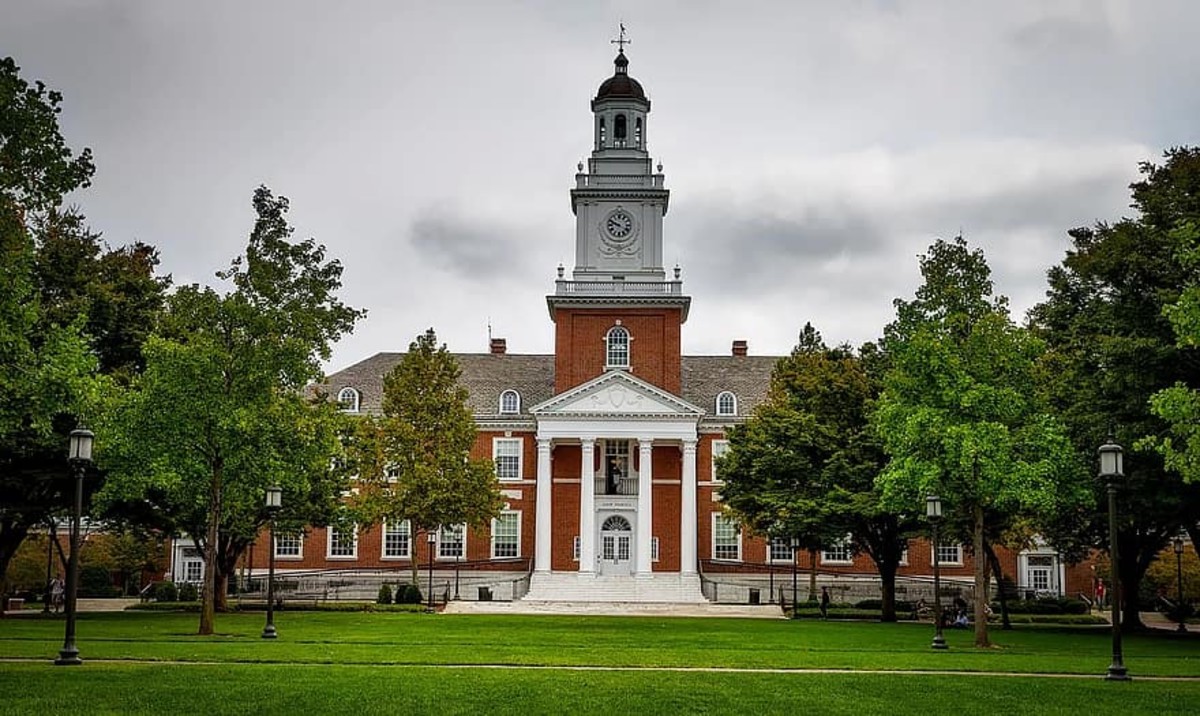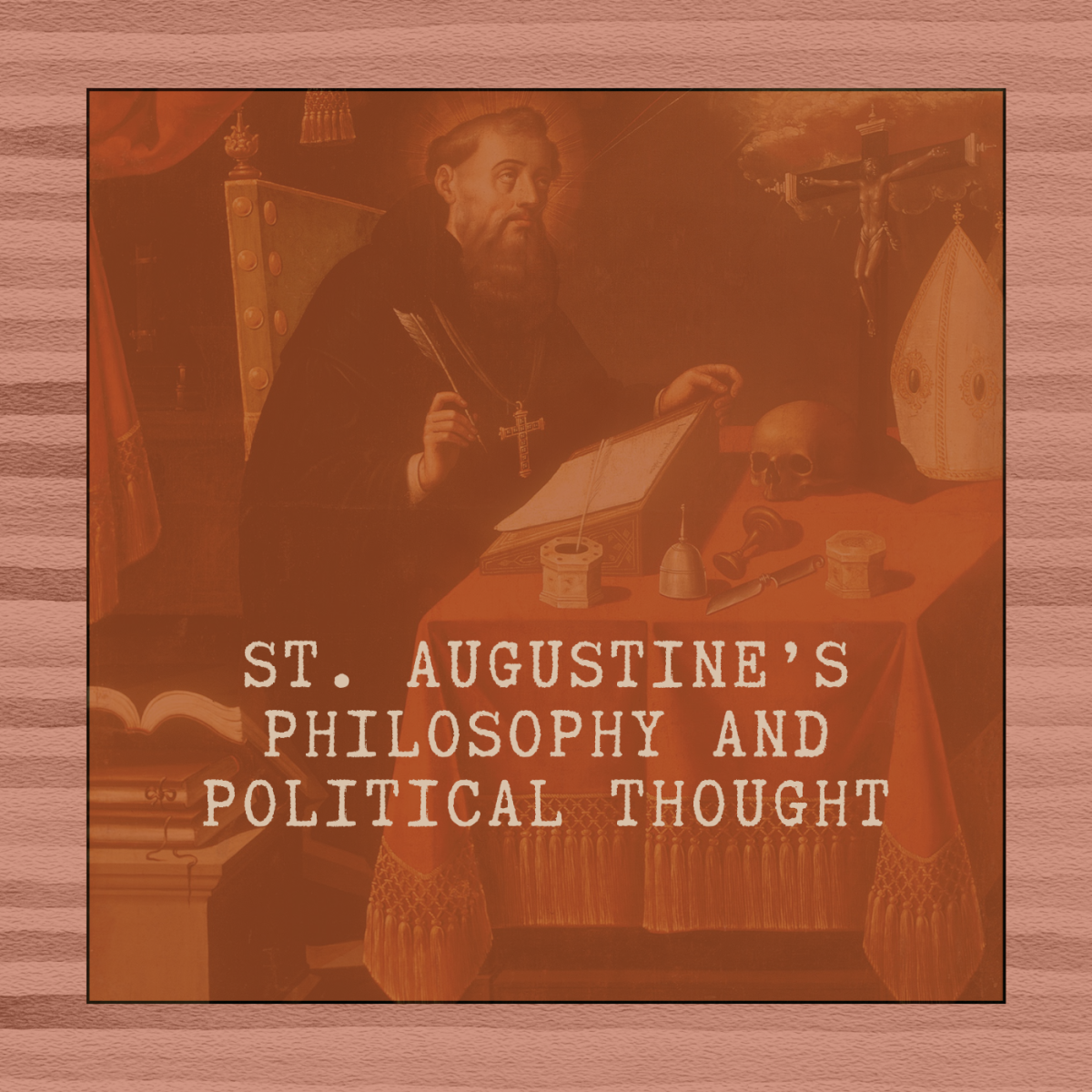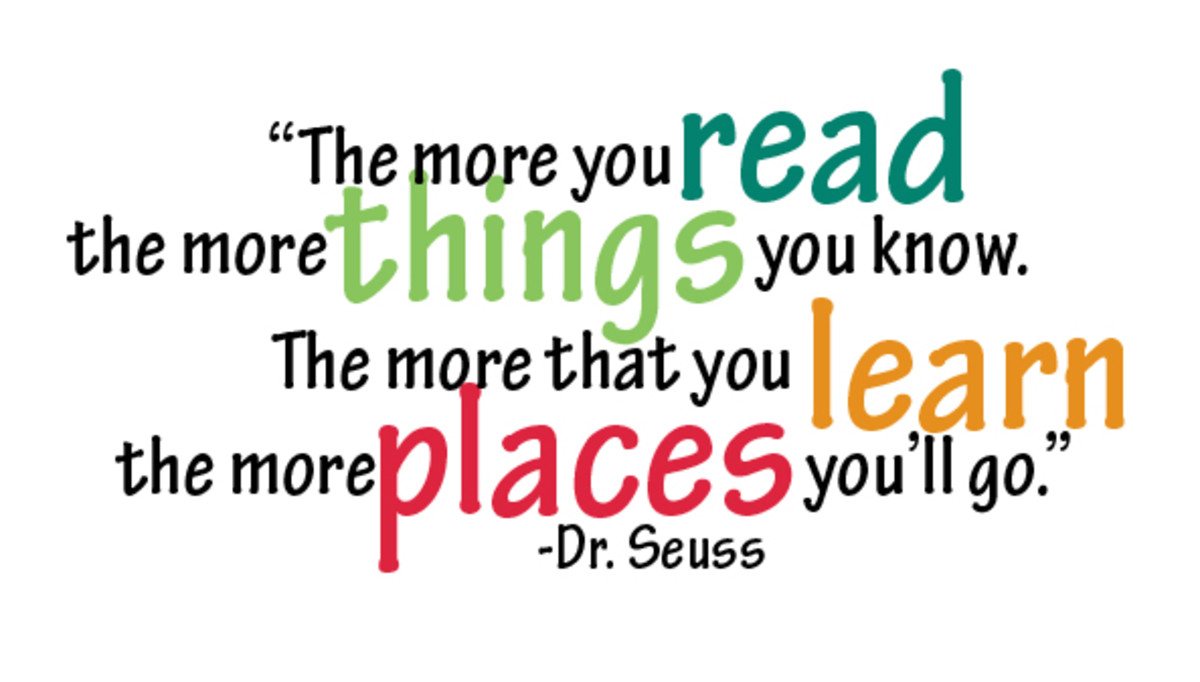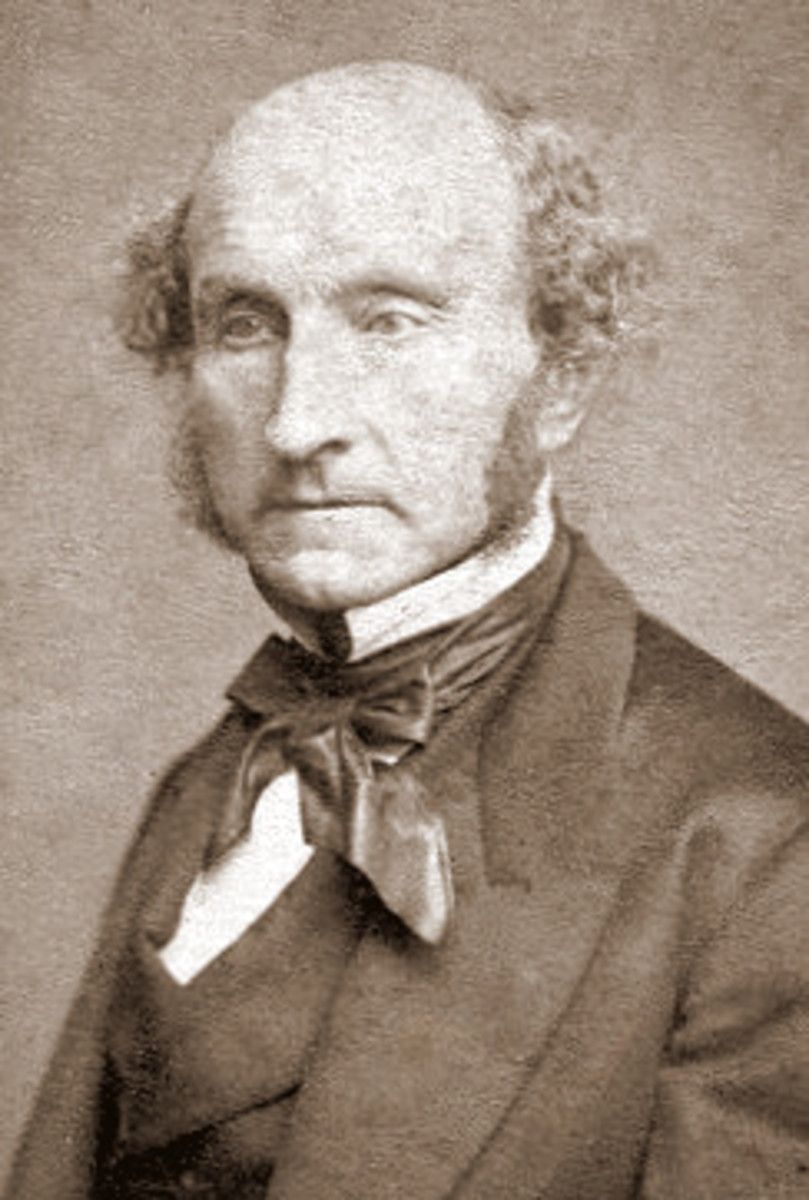American History IV: Founded in Liberalism, Conservatism, and Socialism - Part 2: Minimal State Liberalism
CREDIT WHERE CREDIT IS DUE
BEFORE CONTINUING ON, I want to give my appreciation to The Teaching Company and their Great Courses series of college-level lectures on CD and DVDs for immeasurably increasing my understanding of the political, social, and physical sciences to the degree I am able to write these hubs with some sense that I know what I am talking about rather than repeating the current sound-bites and bumber stickers that make up much of today's rhetoric.
These courses, especially the ones on political, social, and human sciences are written such that while they are indeed college-level in content, I believe they are understandable even if you never achieved a high school diploma. All that is required, I feel, is an open mind which is willing and wanting to learn more about the world around them besides what they may hear on a talk show, read on the Internet, or see on one of the many biased TV "news" shows (yes, I mean Fox and MSNBC).
My special thanks to Professor Joseph F. Kobylka of the Southern Methodist University and his lecture series Cycles of American Political Thought, which opened my eyes to a true understanding of Socialism, Liberalism, and Conservatism that is the basis for this series of hubs. While not my only source, it gave me the tools and lexicon to do even more research on the web, which is also incorporated into what I offer you.
PRELOG
TO SUMMARIZE THE PREVIOUS PART a little, there are three main ideologies in the world today; socialism, conservatism, and liberalism. The first two philosophies assume that society is group, or faction, based; that it is the interests of the group to which government frames its policy. The latter philosophy frames its policy decisions with the rights of individuals in mind and not the rights of a faction.
The factions of which we are speaking boil down to the "Haves" and the "Have Nots". Conservatives and Socialists view these factions as entities onto themselves while Liberals view these two factions as a description of the status an individual may have at any given moment in time. This difference in viewpoints lead to vastly different political, social, and economic systems.
A very simplistic, but nevertheless reasonable idea of the policy choices these three ideas drive is as follows: Conservatives create policies and systems to protect Haves from the Have Nots and to maintain the status quo; Socialists, on the other hand, do the same in order to protect the Have Nots from the Haves as well as to create conditions where individuals are paid for the value of their labor and what they produce and not what they invest.
Liberals, however, admit that there are those who are Haves, and those who are Have Nots, but their policies and systems are designed to promote the ability of the Have Nots to become upwardly mobile, through appropriate application of blood, sweat, and tears, in order to become Haves, while at the same time protecting the Have Nots from the excesses of the Haves as they attempt to maintain their status as Haves. It is no more difficult than that.
AN INTELLECTUAL FORCE BEHIND MINIMAL STATE LIBERALISM
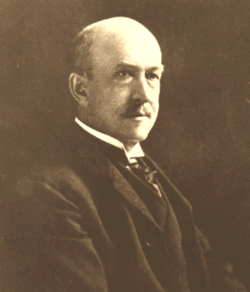
THE VISION OF MINIMAL STATE LIBERALISM
MINIMAL STATE LIBERALISM
Minimal state liberals see individaul liberty in terms of the lone coybow, tending his heard, free from all of the contraints on life, singing homilies such as "the government isn't part of the solution, government IS the problem".
YOU ARE GOING TO SEE THIS POINT MADE a few more times because it is so misunderstood in today's society - to be a Liberal, whether "minimal" or "active" state, you must believe that the rights of individual citizens are paramount over that of any class of citizens, no matter how that class is configured; that is the definition of Liberalism. On the other hand, to be a Socialist or a Conservative, you must believe the opposite - that the rights of individuals derive from and are subordinate to a particular class of individuals. In the case of Socialists, it is the Worker and the Capitalist classes, and for the Conservatives it is a social structure where the layers are, broadly speaking, 1) property owners, 2) merchants, 3) workers, 4) women, and 5) slaves (if they are legal). It is the Class that bestows any individual rights that may exist. Further, both Socialists and Conservatives deny the principles of John Locke and Thomas Hobbes upon which our country was actually founded.
I want to note that use the more academic term, minimal state government, rather than limited state government, even though "limited" seems to mean the same thing and is a more popular and recognizable descriptor in today's vernacular. "Limited" is used by both Conservatives and laissez-faire Liberals to mean that the federal government was never meant to interfere with private enterprise in any fashion whatsoever, nor, for that matter, should state governments. Further, they both believe the wording of the 10th Amendment should have been "The powers not 'expressly' delegated to the United States by the Constitution ..." and not the actual words; it was not an accident the Constitution's framers purposely left out the word "expressly". Even so, "limited" is still the wrong term to use because it incorporates other ideas about government which are central to John Locke's philosophy but which the Right has trouble with; primarily this is the government's right to restrict some individual liberty in protect more important liberties.
It is amazing the power of one word, to wit, "expressly". James Madison, the founder most responsible for the Bill of Rights, fought hard to keep this word out of the 10th Amendment for he knew that if it were included, the Constitution would be no better than the Articles of Confederation. Why? Because if that single word had been inserted, it would eviscerate the federal government's power to act; an effect the word's proponents (the anti-federalists) were hoping for.
To minimal-staters, private property rights and Constitutional contract guarantees trumps all, even individual liberties when they come into conflict. Also, "pulling yourself up by your bootstraps", "Horatio Alger", and "Social Darwinism" are very important concepts for they frame their understanding of the relationship of people to each other and the People to government and the other way around. It is central to their world that people fend for themselves and rely on no one; that they should expect nor want help from government, nor is it governments job to help citizens to succeed or fail in life. This isn't a conservative view, although it may sound like one, but a very liberal view because it is all about the individual and the absolute right to follow their dreams to where ever that may take them without the interference of government either to help or hinder.
WHAT ARE THE TENENTS OF MINIMAL STATE LIBERALISM
WILLIAM SUMNER LAYS OUT THE DIFFERENCE between minimal state liberalism/social Darwinism and progressivism with this argument:
If the question is raised: 'What ought the State do for labor, for trade, for manufacturers, for the poor, for the learned professions, etc.', that is for a class [poor] or an interest [manufactures], it is really the question: 'What All-of-us do for Some-of-us?' But, Some-of-us are included in All-of-us, and, so far as they get the benefit of their own efforts, it is the same as if as if they worked for themselves, and they may be cancelled out of All-of-us. Then the question remains is: 'What should Some-of-us do for Others-of-us, or what do social classes owe to each other?'
Sumner's short answer is "nothing"! Nobody owes anything to anybody else but themselves, period; that is social Darwinism in a nutshell. This view asserts than man is a rational actor and shouldn't be swayed by emotion as well as the rejection of "natural rights". Sumner argues, "There can be no rights against Nature, except for what one can get out of her whatever we can, which is only the fact of the struggle for existence stated over again." Stated more concisely, 'Life is compitition and compition arises from material reality.' Following from all of this is Sumner's conclusion, which we hear frequently from both minimal state liberals as well as conservatives:
In a free state, man is held and is expected to take care of himself and his family, to make no trouble for his neighbors, and to contribute his fair share to public interests and common necessities.
It is not a function of the state to make men happy. Instead, men are responsible for making themselves happy their way, and at their own risk. ("Happy" is in terms of Aristotles purpose for Life, it is an extremely broad term.) Happiness must be earned in the stuggle for existence and the struggle must be borne individually; in other words, all men are an island; the only obligation to society is to take care of himself.
Another facet of minimal state liberals is how they relate freedom, liberty, and equality to each other.
ARE FREEDOM. and EQUALITY THE SAME THING?
FOR MINIMAL STATE LIBERALISM, THE SIMPLE ANSWER IS YES. Sumner thinks consent is the key to any kind of legitimate constraint on your choices, straight out of Locke, and he says it this way:
A society based on contract is a society of free and independent men who form ties without favor or obligation and cooperate without cringing or intrigue. A society based on contract, therefore, gives the utmost room and chance and chance for individual development, and for all of the self-reliance and dignity of a free man...
That is Freedom to Sumner. Equality, on the other hand, has really only one component, equal chance. He says,
We owe it to each other to guarantee rights. Rights do not pertain to results, but only to chances. Each has a right to acquire and possess property if he can. Rights should be equal because they pertain to chances, and all ought to have equal chances so far as chances are provided or limited by the action of society.
In other words, as long as their freedom is not limited, everybody gets what they deserve. Sumner is even more to the point in his 1884 "Sociological Fallacies" where he maintains that "... Hence, the dogma that all men are equal is the most flagrant falsehood, and the most immoral doctrine which men have ever believed. ...". So much for Jefferson's "all men are created equal" idea.
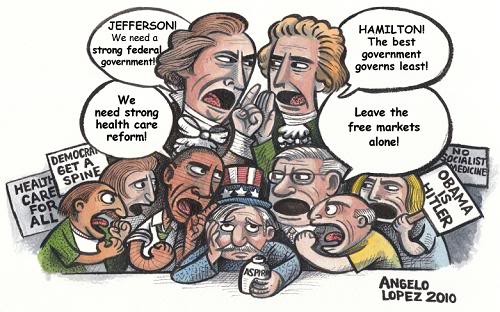
SO, WHAT ROLE DOES GOVERNMENT HAVE?
WELL, AS THE LABEL "MINIMAL STATE" IMPLIES, not much; although having said that, Sumner's view, which I have heard repeated in contemporary debates, is a bit confusing to me in that the role of government, its only role, is to insure fair competition. Yet, when government, then and today, tries to accomplish its role, minimal state liberals object. It gets a little more controversial when you consider this quote,
If political institutions can give security for the pursuit of happiness by each individual, according him to his own notion, in his own way, and by his own means, they have reached perfection.
"If political institution can give security for the pursuit of happiness ...", what does that actually mean? It seems like it could be very expansive, but, as we know this is antithetical to a minimalist's world view. "Give security" can take on many different meanings as it pertains to what a government can do. It seems to me to be a wide-open invitation for active state liberals to take the lead.
In any case, in the main, Sumner, and those who follow him, believe government, especially the Federal government should do little else but provide for the common Defense because individuals are masters of their own fate and need to succeed and prosper, or fail and perish according to their talents and initiative (and the charity of others). The idea is that government should remove "constraints" to personal achievement but that poverty and one's station in life is not considered a constraint.
As far as those who follow this philosophy are concerned these conditions are the person's fault, and nobody else's. He says,
Certain ills belong to the hardships of human life. They are natural. They are part of the struggle with nature for existence. We cannot blame our fellow man for our share of these ...
Others might argue that in certain cases, we can blame "our fellow man", consider institutional discrimination. But, the answer to this from minimal state liberals is not to have the government address the discrimination but to just encourage the downtrodden to try harder, their fate is in their hands, after all.
THE FUNDAMENTAL DIFFERENCE
WHAT IT COMES DOWN TO, THEN, is the fundamental difference in world-view which separates the two groups of Liberals is the degree of responsibility external forces have on and are involved with a person's ability to succeed. Minimal state liberals tend to think there is very little degree of responsibility and therefore requires no external action to alleviate the problem. Active state liberals, on the other hand, believe that there is a high degree of responsibility and does require intervention to equalize the playing field so that each individual has an equal chance at success.
This content is accurate and true to the best of the author’s knowledge and is not meant to substitute for formal and individualized advice from a qualified professional.
© 2013 Scott Belford






